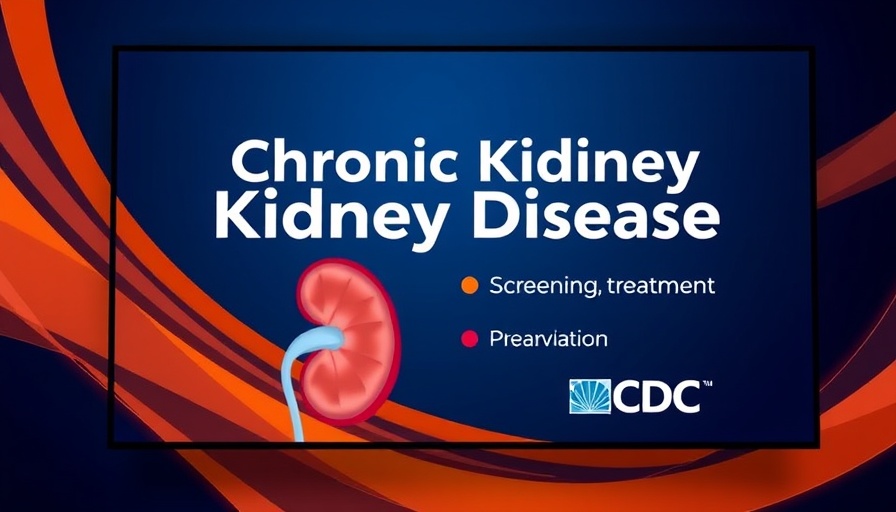
Understanding Chronic Kidney Disease: A Silent Epidemic
Chronic Kidney Disease (CKD) is a serious health concern that affects over 35 million adults in the United States, yet a staggering number remain undiagnosed. This condition, characterized by long-term damage to the kidneys, can lead to severe complications, including heart disease and anemia. For healthcare professionals, understanding the significance of screening for CKD is crucial in reducing its prevalence and associated risks.
In 'Screening for Chronic Kidney Disease,' the conversation delves into the alarming statistics and the need for proactive screening, prompting us to expand on why screening is essential for effective CKD management.
The Risks of Delayed Diagnosis
One of the unsettling aspects of CKD is that it often presents no symptoms until it reaches advanced stages. Many individuals live in the shadows of this disease, unaware that they are at risk due to factors such as diabetes, high blood pressure, heart disease, obesity, or a family history of kidney issues. The prevalence of CKD among diabetic individuals is particularly alarming—approximately one in three adults with diabetes will develop the disease. This statistic highlights the need for vigilance in screening among at-risk populations.
The Importance of Early Detection
Healthcare providers are instrumental in identifying CKD, with timely screening and treatment serving as first-line defenses against its progression. Simple blood and urine tests can detect early signs of kidney damage, allowing for interventions before serious complications arise. The message here is clear: don’t wait for symptoms—act early. With advancements in treatment options over the years, including medications like ACE inhibitors, ARBs, and GLP-1 receptor agonists, healthcare professionals can offer life-saving assistance to patients whose conditions might have otherwise gone unnoticed.
Actionable Steps for Healthcare Providers
What can healthcare professionals do to prioritize CKD screening? First, understanding the risk factors is imperative. Screen patients with diabetes, high blood pressure, and those with a family history of CKD regularly. After identifying high-risk individuals, ensure they undergo the necessary tests. Prompt action can mean the difference between managing the condition effectively and facing dire consequences, such as kidney failure.
Empowering Patients with Knowledge
Patient education plays a pivotal role in the management of CKD. Explain the implications of their health risks and the importance of routine screenings. Patients who are informed about their conditions are more likely to follow through with recommendations, leading to better health outcomes. Empowering individuals with knowledge decreases the chances of CKD progression, ultimately saving lives.
By focusing on early diagnosis, healthcare professionals can significantly reduce the burden of Chronic Kidney Disease on our health systems and improve the quality of life for millions. Enhancing awareness among at-risk populations and advocating for routine screenings is not just beneficial—it's essential.
 Add Row
Add Row  Add
Add 


Write A Comment